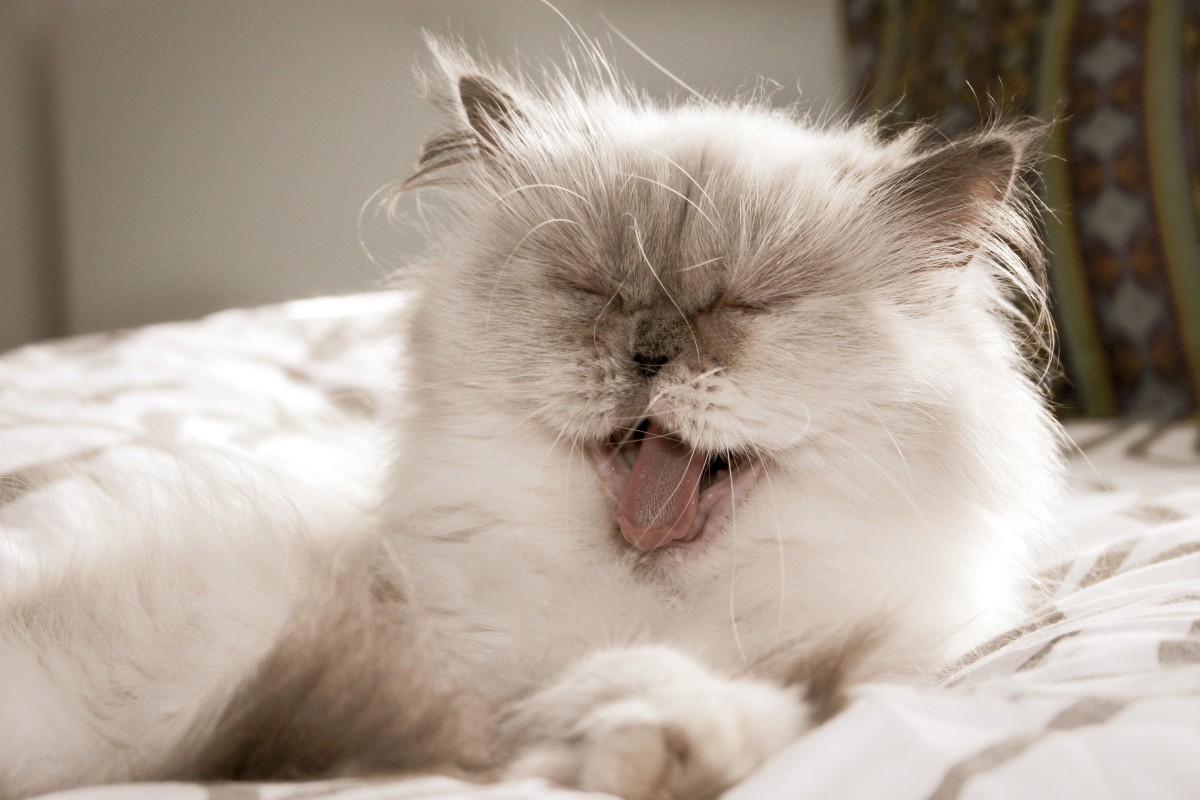Quite simply, Persian cats are stunning. Their elegantly long coat, pinchable chubby cheeks, and gorgeous big eyes are truly captivating. If you’re the type who believes it’s what’s on the inside that counts, these pretty kitties deliver in that regard, too. Persian cats tend to be affectionate and quiet. They often curl up in their parents’ laps. People are typically happy to indulge them in long snuggle sessions — that silky-soft fur is hard to resist.
In short, Persian cats are often considered the perfect companions. Sadly, they can’t be our Netflix marathon buddies forever. The hard truth is humans tend to outlive their pets, and Persian cats are prone to some health issues. It’s important to remember the Persian cat lifespan is an average, meaning it varies between kitties. However, it can give you an evidence-based idea of how long you can expect your kitty to be with you.

What’s the average Persian cat’s lifespan?
Persian cats live to be about 13.5 years old on average. This lifespan may seem short. After all, some kitties can live to be 20 years old. However, Persian cats are susceptible to some health issues.
A 2019 study by researchers at Royal Veterinary College (RVC) and the University of Edinburgh found some of the most diagnosed conditions in Persian cats included:
- Haircoat disorders
- Dental disease
- Overgrown nails
- Eye discharge
- Cancer
- Kidney disease
Researchers found that kidney disease was the most common cause of death, followed by cancer. Nearly 65% of Persian cats had at least one disorder.
Other experts say common health issues include:
- Weight loss
- Vomiting
- Lameness
- Upper respiratory infections and other respiratory issues (their stump noses may impede breathing)
- GI issues
- Appetite loss
- Pancreatitis
Ways to keep your Persian cat healthy
You love your cat and want to have as much time as possible with them. It’s important to know there’s only so much you can do. Just like humans inherit increased risks for certain diseases such as heart troubles or diabetes, cats do too. However, there are plenty of steps you can take to help your Persian cat live the longest, healthiest, and happiest life possible. Here’s what experts recommend:
- Keep your Persian cat indoors. In general, indoor cats live 10 to 15 years. On the other hand, outdoor cats have a lifespan of two to five years. Outdoor cats are more likely to pick up a disease or parasite, get attacked by another animal, or get hit by a car. It’s much safer for your kitty inside.
- Nix eye gunk. Persian cats’ pretty eyes can get “weepy.” The discharge can build up and cause an infection. Wiping eyes twice per day with a vet-approved eye solution or warm water can mitigate this risk.
- Clean ears. Persian cats’ ears are smaller than other breeds, so you may not notice if something is amiss (especially if you’re too busy gazing at their cheeks). However, Persian cats can get ear infections. Their ears can also accumulate dirt and oil. Inspect ears frequently and use a cotton ball and pet-friendly ear cleaner to banish build-up.
- Brush teeth. Dental disease can be painful and even cause cats to stop eating. Veterinarians recommend brushing your feline’s teeth at least three times per week.
- Watch their weight. Obesity can increase the risk for chronic disease. Persian cats typically weigh between seven and 12 lbs. A healthy diet, plenty of water, and play sessions can help keep your cat on track.
- Give monthly preventatives. Even if your cat stays indoors, there’s always a chance you could bring parasites inside. Monthly preventative medications can reduce your cat’s risk of infection or disease.
- See your vet. Regular check-ups can lead to early detection of issues, including cancer, and may make them easier to treat. They will also ensure your pet is up-to-date on vaccines against preventable diseases.
Proper care will help your Persian live a longer life
The average lifespan of a Persian cat is about 13.5 years. The breed is prone to health problems, including kidney disease and cancer. Though Persian cat caregivers can’t prevent everything, as genetics play a role, they can take some steps to help their pets stay healthy and happy. Feeding your cat a healthy diet and leaving out plenty of fresh water are simple steps. Don’t let your Persian cat outdoors — indoor cats generally live longer, and your home is safer than a busy street or area with predatory animals. Regular eye and ear cleanings can prevent irritation and build-up. Play sessions can keep your cat fit and engaged, and frequent brushings will keep their coat healthy (and feel like a luxe treatment). Don’t forget to give your cat preventative medications. Regular vet check-ups will help catch any issues early, giving your cat the best chance to get better.




